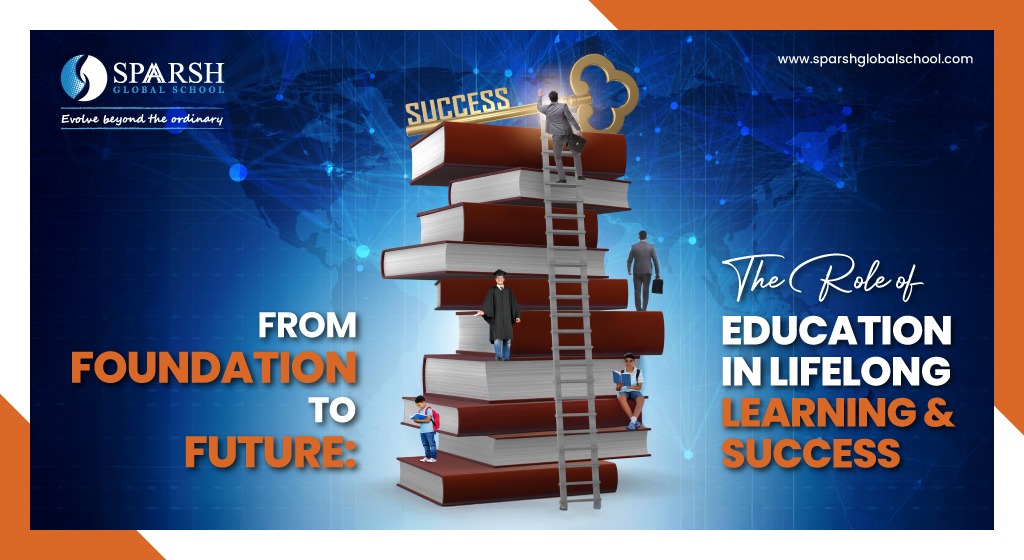The role of education in life and career is undeniable. Education has undergone a paradigm shift in the last decades and its role now extends way beyond formal textbook knowledge. The whole purpose of education is to make way for the next generation to be nurtured into wholesome individuals, strong not just in academics, but in essential skills which readies them for a future which is dynamic and ever changing. The world has evolved into one seamless place; the right education prepares individuals to collaborate, respect others’ diverse cultures, work seamlessly, adapt to changes to situations and environments and be productive and compassionate leaders of tomorrow.

The Bedrock of Early Education
Early learning sets the stage for all subsequent learning. Between kindergarten and primary grades, children develop cognitive, emotional and social competencies, among others. A preschool education prepares children for fundamental maths, language, scientific analytical reasoning, brainstorming and social interaction. These are the years when students learn to solve problems, work in groups and handle challenges.
Game-related, pragmatic and discovery-based best practices work well in early development. Children benefit from such techniques because they can appreciate education without seeing it as a chore. Students always have this foundation of affection for learning, which inspires them for future learning.
Transitioning to Secondary Education: Expanding Horizons
As children progress to higher levels of learning, their schooling changes to accommodate their intellectual and social growth. Middle and high schools assist children in discovering their talents, preferences and career paths during critical developmental stages. The curriculum adds advanced maths, sciences, humanities and arts to improve the range of learning.
Extracurricular activities, sports and community service are equally important as they build character, leadership and responsibility. They also develop problem-solving skills, teamwork, collaboration and many more that prepare them for academic and vocational endeavours in future.
Higher Education and Specialisation: Crafting Career Paths
University education is a stage where students refine their programme and choose areas of specialisation based on their preferences and desired professions. Through university degrees, vocational training and technical certifications, post-secondary education enables students to gain subject-matter proficiency. At this stage, developing technical skills and industry connections become crucial.
Further, many higher learning institutions encourage students to undertake research, internships and training in the job market. Through this process, students develop a hands-on experience of what goes on in real job market and that proves priceless in their career.
Lifelong Learning: Adapting in an Evolving World
Academic achievement alone is but one part of education. Lifelong learning has human knowledge as the primary source of capital. Those who see education as a lifelong learning are willing to make changes and pick up skills when they need to switch to different careers or learn about a new concept. In different forms of programmes, new generation schools equip students for a life long learning process. Obtained beyond the traditional classroom learning formats, such education promotes all-rounded development, fosters creativity and broadens learning opportunities.
Education as the Gateway to Success
From the time a student sets foot in a classroom, till they pursue a passion or career later on in life, education continues to play a crucial role in paving pathways to success across various fields of expertise and interest. It nurtures curiosity and thinking skills in individuals that propel them towards challenges and in exploring new paths. It is worth recognising that essential qualities for success in a person such as adaptability and problem solving abilities are naturally developed through continuous learning.
Conclusion
The role of education in people’s lives is vast and unarguable; it is not just about books and examinations. This concept is lived by institutions like Sparsh Global School that aspire to develop the qualities and skills of students in the context of a complex and dynamic world. It's a journey that prepares one with the right flexibility, problem solving and zeal in learning. Students at Sparsh Global School can lay the foundations of their futures here; one filled with resilience, growth and achievement.
FAQ
1. Why is lifelong learning essential in today's world?
Lifelong learning is crucial as it equips individuals to adapt to changing job markets, reskill and upgrade when needed and maintain personal and professional growth throughout one’s life.




